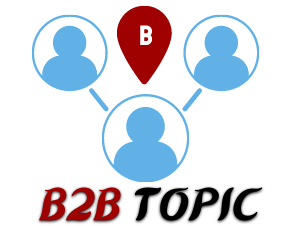Dreaming of a career in the aerospace industry? You’re not alone. Every year, thousands of young men and women strive to experience the exhilaration of working in this fast-paced sector—a field that offers impressive remuneration packages and access to cutting-edge technology.
But entry into the aerospace industry is no easy feat: whether you’re starting out with ab-initio pilot training or trying your hand at aircraft maintenance engineering, employers require applicants to meet certain qualifications and competencies before they welcome them on board. Here are some of these essential requirements that will help give you a leg up when applying for jobs in aerospace!
Educational Qualifications
Achieving a career in the aerospace industry requires a strong educational background. Securing a degree in aerospace engineering, mechanical engineering, or a related field provides a solid foundation in the subject matter, and is vital for prospective professionals in this field. Even more essentially, candidates in the aerospace industry must exhibit proficiency in science, mathematics, and engineering principles.
In order to succeed in this industry, prospective candidates must build their theoretical expertise through educational qualifications that provide them with the necessary skills to excel. The aerospace industry requires its professionals to constantly push the bounds of what is possible, and this requires professionals with a deep understanding of specific subject matter. If you are considering a career in this field, obtaining a relevant educational background should be your top priority.
Technical Skills
To enter and succeed in the aerospace industry, it is essential to develop strong technical skills that are applicable to the field. This means becoming proficient in computer-aided design (CAD) software, including 3D modeling and simulations, which are used to design and develop components and systems for aircraft and spacecraft. Additionally, programming languages, such as Python and Java, are used in aerospace for data analysis and manipulation, as well as for control and monitoring of systems.
A strong understanding of systems analysis and aerospace materials and technologies such as aerodynamics, mechanics, and thermodynamics is also crucial. With a solid foundation in these technical skills, aspiring aerospace professionals can be well-equipped to contribute to the dynamic field of aerospace and contribute to achieving great feats such as space exploration and aviation advancement.
Aerospace Experience or Internships
The aerospace industry is a highly complex and sophisticated field that requires a multitude of technical skills to be successful. One of the most important requirements for entry into this exciting and cutting-edge field is practical experience. In order to gain this practical experience, individuals can participate in internships, cooperative education programs, or entry-level positions within the aerospace industry.
Through this hands-on experience, individuals can gain valuable insight into industry practices, cutting-edge technologies, and complex processes that are essential to success in the aerospace industry. So, if you are interested in pursuing a career in aerospace, make sure to focus on developing your technical skills and gaining the practical experience you need to succeed.
Industry Certifications
One way to enhance your qualifications and demonstrate specialized knowledge is by acquiring relevant industry certifications. These certifications can make a significant difference in your chances of getting hired. Organizations like the American Institute of Aeronautics and Astronautics (AIAA) or the Federal Aviation Administration (FAA) offer certifications that focus on specific areas of the industry.
So whether it’s aerodynamics, propulsion, or space exploration that interests you, there is a certification out there for you. Not only will this highlight your commitment to the field, but it will also prove to potential employers your level of expertise. So take that extra step and get certified today to give yourself the best chance of achieving your dreams in the aerospace industry.
Knowledge of Regulatory Frameworks
The aerospace industry is an exciting and constantly evolving field that requires individuals with a certain set of skills and knowledge. In order to succeed in this industry, it is essential to be familiar with aviation regulations, safety protocols, and quality standards.
These guidelines are set by organizations such as the International Civil Aviation Organization (ICAO) and the Federal Aviation Administration (FAA). Adhering to these regulations is critical as they ensure that aviation companies provide safe and reliable products and services. By understanding and following these guidelines, individuals can become valuable employees in the aerospace industry and contribute to its growth and success.
Security Clearance
The aerospace industry is a fascinating and innovative field that offers a wide range of career opportunities. However, it’s worth noting that obtaining security clearance might be a requirement for entry into the industry. In most cases, the type of security clearance needed will depend on the specific role or organization a candidate is applying to.
Candidates may be dealing with sensitive information, classified projects, or defense-related work, which in turn will require passing rigorous background checks and obtaining necessary clearances. For instance, in Oregon, drug screening might be a compulsory process for clearance acquisition. As daunting as this may sound, it’s an essential part of ensuring the safety and protection of individuals and the nation’s interests overall. Ultimately, the aerospace industry remains an excellent field for anyone looking to make a significant impact in the world of engineering and innovation.
Remember, these requirements may vary depending on the specific area within the aerospace industry, such as design, manufacturing, research, or maintenance. It’s important to stay up-to-date with industry trends, advancements, and any additional requirements specific to your desired role.

